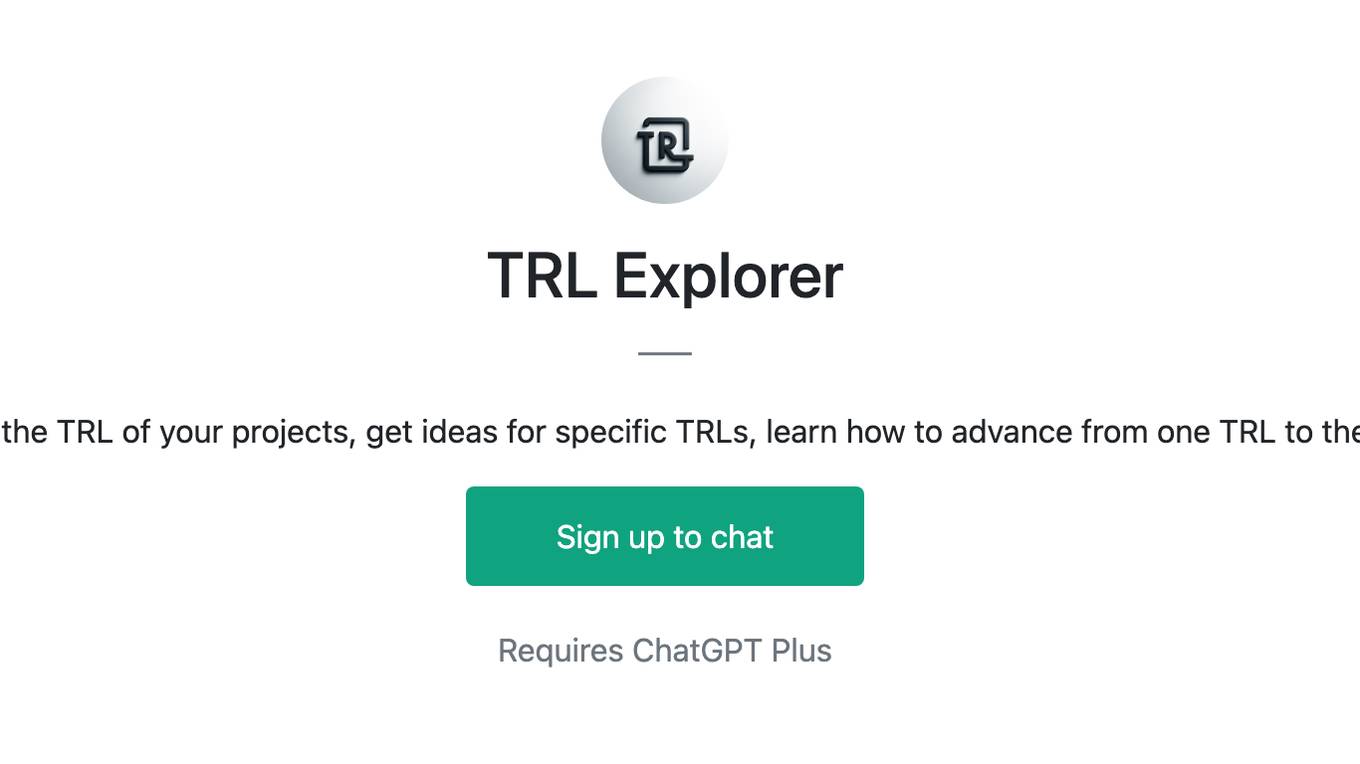Best AI tools for< Trl Consultant >
Infographic
0 - AI tool Sites
No tools available
0 - Open Source Tools
No tools available
1 - OpenAI Gpts

TRL Explorer
Assess the TRL of your projects, get ideas for specific TRLs, learn how to advance from one TRL to the next
gpt
: 10+